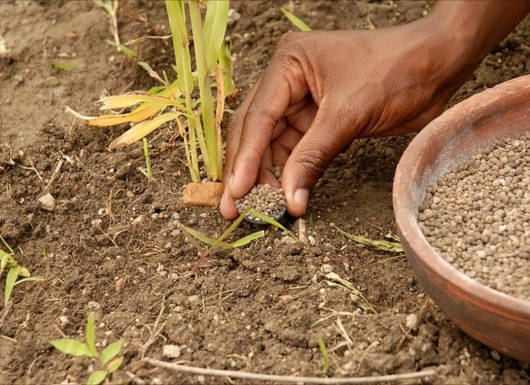Submitter: (ICRISAT)
Soil test-based fertilizer recommendations involve analyzing soil samples to determine nutrient deficiencies and excesses, and then providing tailored fertilizer recommendations to farmers. It addresses the widespread multi-nutrient deficiencies in soils, optimizing nutrient use, improving crop productivity, and enhancing soil health.

Successfully applied these technologies in the states of Odisha and Karnataka (Bhoochetana projects in Odisha and Karnataka), as well as in other parts of the country, with a focus on arable lands and smallholder farms. This approach is scalable to Sub-Saharan Africa and different Asian countries, where nutrient deficiencies (e.g., zinc, boron) are prevalent. It can be adapted for precision agriculture systems with variable-rate fertilizer applications.
In Karnataka, the "Bhoochetana" project positively impacted over 26,000 villages and 4.2 million farmers. In Odisha, 40,265 georeferenced soil samples were analyzed, and soil health cards were issued.
Soil test-based fertilizer recommendations need to be scaled as these technologies are cost-effective, adaptable to diverse agro-ecological zones, and compatible with existing agricultural extension systems. The approach delivers high returns by improving yields and input efficiency, making it attractive to both farmers and policymakers. For successful adoption, key requirements include accessible and affordable soil testing services, farmer awareness and training, digital tools for interpreting and delivering recommendations, and strong partnerships among research institutions, agri-tech providers, and government agencies.
Dr Pushpajeet Lokpal Choudhari: pushpajeet.choudhari@icrisat.org